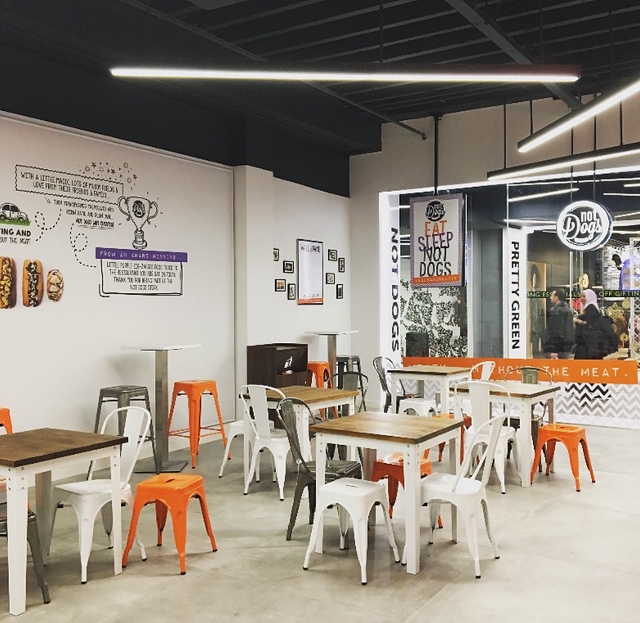Jane Yates talks about meat-free alternatives.
National Burger Day on 23rd August, is dedicated to one of the nation’s favourite foods – the burger. Traditionally known as a hamburger, associated with the German town of Hamburg and the origins of the burger, it consists of a fried ground beef patty sandwiched inside a bun. Of course, it’s the 21st Century and things have moved on, leaving the traditional beef burger a thing of the past.
Enter the most delicious meat-free burger in its place royally named The Queen B available from Birmingham’s Not Dogs fast-casual restaurant all year round. A meat-free Quarter Pounder topped with oozing cheese, crisp lettuce, fresh onions and their ‘Secret Sauce’ is a hit with vegetarians, vegans and meat-eaters alike with them selling over 800 from their site every week.
At Not Dogs we think consumers have moved on from traditional burgers and are now looking for something more modern and up-to-date which is why the Queen B Burger satisfies those burger cravings in a way that’s better for us, animals and the planet. There’s nothing I love more than when a meat-eater chooses it over a meat-based burger – it’s amazing!
The demand for meat-free food increased by a massive 987% in 2017, according to YouGov as health, environmental impact and welfare issues rise to the forefront of consumers minds when choosing the food they eat. It’s not just the rise of vegetarianism and veganism that’s impacting on the shift but another group known as ‘flexitarians’ who reduce the amount of meat in their diets, whether it be for one meal or a whole day.
Not Dogs change the perception of fast food making traditional, old-fashioned fast food a thing of the past, bringing meat-free to the mainstream. Purposely, targeting all eating groups, Not Dogs create delicious ‘meaty’ fast food from the best alternatives that truly are ‘meaty without the meat’. The menu includes their original ‘Not Dogs’, mouth-watering burgers, sides, salads and shakes.
The increase in availability of meat-free food, not only in supermarkets but on the high-street with places like Not Dogs, make is easier for people to make the simple switch and help reduce agriculture’s impact on the global warming crisis of which livestock contributes to 15% of all emissions. Amazingly, leading analytics and data company GlobalData report that a full 70% of the world’s popular is either reducing their meat consumption or moving away from it completely.
Meat-free food is a simple and delicious way to cut down on meat intake but still have the experience of eating meat without the moral and health side-effects. Consumers are a lot more aware of how often they choose to eat meat, how much they eat and where it comes from.
The author is the co-founder of Not Dogs.
